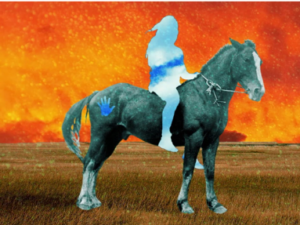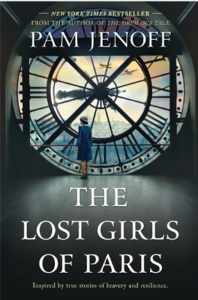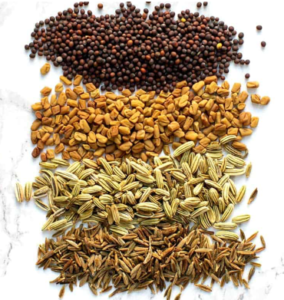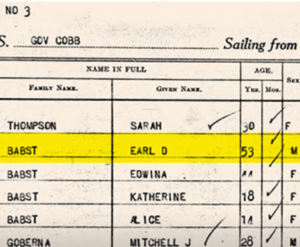Countries across the globe are in the midst of nationwide lockdowns to fight the spread of coronavirus. While the world’s most infected country, the US, has no such national-level order, most Americans are still under some form of lockdown due to efforts on the local and state levels.
Whether ordered to or not, staying home is perhaps the most socially responsible thing we can all do right now. Find innovative ways to share your food and supplies, spread your empathy, pressure your political system— but at the very least, stay home.
Stay home in solidarity, for your family, your neighbors, your state, for healthcare workers on the other side of the world.
For many of us, staying home is already a coping mechanism for harrowing times. Home is safe. Home is plentiful. There is much healing that can happen at home.
But what if home is abusive? What if home doesn’t have four walls and a roof, food, running water?
This week, in introduction to our post sharing the coping activities that we here at CATALYST have been implementing for our time at home not working, we’d like to recognize and acknowledge the privileges we have to be able to read, listen, rest, exercise, eat, play and create during this time.
The newfound human connection and resiliency during this pandemic will, we hope, give rise to a new way of thinking about who is deserving of the privileges of health, safety and care.
This is the third in our weekly series.
What we’re watching:
“The show must go on! Pandemic Festival is a way to come together during this social distancing. So many performers and professionals in the show biz have had their lives and incomes put on hold as many others have had. This is our way of allowing the show to go on. Live streams hosted by production companies from all over the world 100% free.
Also, 12 famous museums offer virtual tours.” —Lauren Singer Katz, CATALYST/Common Good Press Board of Trustees.
“Wonderful dance video featuring about 50 different folks. Don’t miss.” —Naomi Silverstone, CATALYST/Common Good Press Board of Trustees.
“If you haven’t seen this already, we found this very empowering and helpful. Dr. Price is an ICU doc at Cornell and treating COVID patients. His video call was made late last week. It’s about an hour but you can listen to while walking, cooking or whatever.” —Susan Dillon, CATALYST/Common Good Press Board of Trustees.

“Even if you are not familiar with his work (as I was not), I recommend the documentary Words From a Bear, about the life and work of Pulitzer Prize-winning Kiowa writer Navarro Scott Momaday. It’s available on PBS as part of their American Masters film series.” —Emily Spacek, CATALYST distribution manager and writer.
What we’re reading:
“I just read LOST GIRLS OF PARIS. Excellent… Helping me put things in perspective… Also, so many themes with which to identify… Strong women doing such dangerous work in Nazi occupied territory during WWII.” —Naomi Silverstone.

“I subscribed for $1 trial month to the Financial Times online. It’s pretty slick and informative!” —Sophie Silverstone, CATALYST Community Outreach Director.
“I have discovered Audible and have been listening to books (The Murmur of Bees was excellent and even has a pandemic in it).” —Polly Mottonen, CATALYST art director.
“I just finished reading The Color of Food: Stories of Race, Resilience, and Farming by Natasha Bowens. The title says it all, it’s essentially a compilation of stories about farmers of color in America. If you like farming, social justice, or just a good book I’d highly recommend it!
I also just started listening to A Paradise Built In Hell: The Extraordinary Communities That Arise in Disaster by Rebecca Solnit, and so far I’m loving it. It’s a book about community resilience and the good that can come out of disasters, and honestly I think it’s been keeping me sane during this whole pandemic.” —Nataly Welch, CATALYST intern.
What we’re eating:
“Kitchari! I made a double batch from this recipe… no time like now to simplify your grocery needs for a couple of days and do a five-day kitchari cleanse.” —Sophie Silverstone.

“Four of the jobs in my household are healthcare ‘essential’ jobs. We all wash our hands a LOT. Cloths worn in the hospital are kept in a bag and laundered in their own load with hot water and soap. We all strictly avoid contact with population outside our work/home.
I keep lots of hard-cooked eggs ready for grabbing between double shifts.” —Polly Mottonen.
“We opted to go vegan last month so we’re still learning how to do that better. There’s a huge learning curve. For example: If you’re going to have a shit ton of nutritional yeast you better not forget lemons. And for the record, limes are not good substitute for lemons—especially when creating a cheesy sauce. Just so you know. And, just so you know, you can order up a 50lb of Meyers lemons directly from the grower and have them shipped to your house. And, yes, you can wash whole lemons and freeze them in baggies or juice them and freeze the juice in ice trays.” —Susan Dillon.
What we’re listening to:
“Just a few days ago Bob Dylan released a 17-minute ballad about the assassination of J.F.K., ‘Murder Most Foul.’ It’s his first original song released in eight years, so definitely worth a listen if you’re a fan.” —Emily Spacek.
“I’m really looking forward to tomorrow when the April issue of CATALYST will be done and I can have more free time. What’s kept me on task the last few days is an app called Brain.fm. The Deep Work Focus channel really works for me. At this time I find the Relaxation options just annoying—who has time to relax? Maybe tomorrow they’ll sound better!” —Greta deJong, CATALYST editor
What we’re learning:
 “Great news for anyone interested in family history! The US National Archives records are now available for free on Ancestry! Could be something cool in there—it’s quite the treasure hunt!” —Lauren Singer Katz.
“Great news for anyone interested in family history! The US National Archives records are now available for free on Ancestry! Could be something cool in there—it’s quite the treasure hunt!” —Lauren Singer Katz.
“Four of the five people living here are wrapping up university online classes. Four out of five are male and enjoy playing video games. So, yeah, there’s a lot of online gaming going on. *eye roll* Who knew that there is a whole virtual social component to video games— 6 people in different rooms, houses, cities or even countries, all playing together and having a great time? I’m learning more than I ever wanted to know about the gaming world.” —Susan Dillon.
What we’re working on:
“Every day it’s my goal to stretch my splits, press handstands, and backbends. Hoping that by the end of this pandemic, I’ll at least be more flexible!” —Sophie Silverstone.
“As I work from home, not a whole lot has actually changed for me, other than I’m being less careless about going to the hardware store or metal shop for hobby project supplies. We’ve canceled a camping trip with friends…but I’m still hiking by myself and riding my bike a lot.” —Pax Rasmussen, CATALYST executive director.
“I’m working on John to build me shelves in a closet formerly full of clothes racks. For me, at least for some months, dressing up is pretty much passé. Those hidden shelves, when they contain puzzles, games and projects currently in full view, will provide a special place to visit when I have the time to indulge and make the rest of the room feel more spacious.” —Greta deJong.
